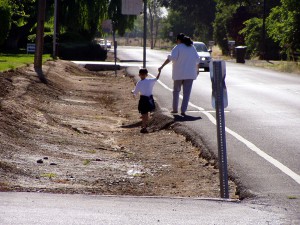The workshop was hosted on December 13, 2011, at the Sierra Health Foundation by the American Lung Association in California, the Healthy Places Coalition, Human Impact Partners and ClimatePlan. Along with local partners WALKSacramento, Environmental Council of Sacramento, and the Coalition on Regional Equity, the workshop brought together over fifty health professionals and sustainable communities advocates to bring health measurements and outcomes into regional planning.
The focus was on the current draft Sacramento region’s Sustainable Communities Strategy/ Metropolitan Transportation Plan, but the long term goal was to incorporate health and equity into planning at all levels.
Key points from the breakout sessions were:
Active Transportation:
1) Complete streets implantation is key to active transportation – need to measure progress towards goal
2) Projects proposed for consideration- health proponents should be quantified and be able to be first priority in funding
3) Bike lanes and infrastructure needs to be tied with land use- interconnectivity, destination should be factored in siting of specific projects
4) Democratizing data- not everyone can work through models, data as laid out- other groups can have access
Equity:
1) Make a significant effort on community engagement/public participation, including CBOs, neighborhood associations, using a variety of communication outlets. Securing commitment from SACOG to include genuine public participation-in updating public participation manual
2) Ensuring SACOG fulfills civil rights obligations throughout the plan, not just equity chapter. Account and analyze displacement and gentrification potential
3) Affordable transportation access – offer discounted passes, lobbying regional transportation board to consider income scales
4) Modeling transparency- models based on assumptions, can be flawed. Accountability for assumptions
Performance Metrics:
1) Value to health and equity metrics for evaluation as well as for comparing land use and transportation in region
2) Monitoring and tracking projects in SCS projects moving forward
3) Who should track metrics- jurisdictions and advocates
4) Use existing data to track metrics but also important to establish better data tracking for futureSCS
5) Baseline measurements to track, also measure and track qualitative metrics
It was a very productive day. Go here for a thorough summary of the event provided by ClimatePlan.
